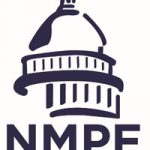
“We have to stay engaged, because if we don’t stay engaged, someone else will be engaged that doesn’t think the same way we do,” said DBA President Tom Crave as he kicked off Dairy Day at the Capitol.
In an effort to create positive relationships and become the “go-to” resource for legislative officials on dairy issues, more than 40 DBA members participated in a question and answer panel discussion with legislative leaders in Madison before splitting up into teams to visit 46 offices and talk with 69 legislators or their staff members on real-world needs in the dairy industry.
Water quality, driver’s permits for non-citizens, funding for dairy research and long-term transportation needs are among top legislative priorities for the DBA.
“This is our opportunity to share real-life experiences from the farm and other dairy businesses that will inform lawmakers as they make decisions on legislation,” said Chad Zuleger, associate director of government affairs for DBA.
Evers’ budget items
Talking with DBA members, Governor Tony Evers compared “true legislation” to making sausage, he told the group their “role as leaders in the dairy industry in engaging with the legislators is really, really critical.”
As dairy farmers have advanced and developed, embracing technology and “doing everything that the state and the country has asked them to do,” Evers said, “It’s time for us in the state to make sure that we reciprocate that.”
Making sure farmers have the best resources and the best opportunities to continue to thrive in Wisconsin are top priorities for Evers, he pointed out.
Evers talked about issues where the legislative and dairy worlds “intersect,” such as driver’s permits, the University of Wisconsin system, transportation and quality of rural life that would be improved with better broadband access.
The issue of driver’s permits for immigrant workers, is “pretty simple.”
“If we have undocumented folks that are good workers, we want to keep them and we want to make sure that they can get to work and that means also frankly, safer transportation,” said Evers. “A driver’s permit allows them to do that and has nothing to do with them voting or all the things that people put out there that are kind of scary for some people.”
Evers also pointed to issues around the UW system and lagging funding for research. Evers’ budget proposal includes a “relatively large increase for funding for them including some very specific things around the dairy industry,” Evers explained. “It’s been difficult sledding over the last few years and we have to make sure they have adequate resources.”
With farmers dependent on roads for everything from shipping milk to getting products to customers, getting from point A to point B on roads is important, Evers added.
“We’ve spent a lot of time over the past few years borrowing money to improve our roads and that’s unsustainable,” said Evers. “We have to move it forward in a better way.”
Having good quality water is important for everyone in the state, including farmers, but the “complexity of making sure the water is accessible and clean,” Evers said is “very difficult.”
“We can have a strong dairy industry and can have clean water,” said Evers. “I don’t think those things are mutually exclusive.”
Evers also asked for support on “ambitious goals” around providing broadband in rural areas.
Supporting research
While the DBA supports dairy research at UW-Madison, the group sees the UW Dairy Innovation Hub as the answer to preserve the world class level of research and help the dairy industry weather the challenging economic times.
The multi-campus, multi-disciplinary initiative would help hire top-level researchers and provide tools for “taking our research to the next level,” Holevoet explained.
The project would involve land and water stewardship, animal welfare, health and human nutrition, developing new and innovative products, growing markets abroad and rural business community development.
“This is something we hope will go beyond dairy,” said Holevoet. “We think there’s basically something in here for all parts of agriculture.”
The project would come with a nearly $8 million per year investment “to fund a whole bunch of new research positions,” and attract hopefully $70 million in grants to further research.
“We’re a $44 billion economic driver here, so what we are asking for is .02 percent of what our annual economic impact is,” Holevoet said.
The proposal is not in the UW system budget but is being drafted as standalone legislation, according to DBA.
Transportation
There’s no doubt farmers depend on roads in many ways and the local roads where many dairy farms are located are deteriorating. DBA supports a sound and sustainable way to pay for transportation projects “as long as we don’t forget about rural America and rural Wisconsin,” Holevoet said, recognizing that road projects exist in metro areas but farmers need good roads to produce and ship their product to those metro areas.
“I do think your lobbying is really crucial, especially some of these Republican offices you’re going to, being conservative folks like yourself,” said Shawn Pfaff, DBA contract lobbyist. “To talk about the importance of … transportation funding, especially in farm country, is a powerful message. You guys can be very impactful.”
Driver’s permits
Driver’s permits for non-citizens would ensure that everyone who is driving is properly trained to drive and insured. But it’s a very controversial issue. It’s not about immigration rate or voting privileges – Holevoet said. There are safeguards in place regarding voting.
“The key point there is we are not in the immigration enforcement business,” said Zuleger. “This really is about public safety … making sure people are properly trained, insured and accountable.”
Before Real ID was enacted by the federal government, it wasn’t necessary to be a citizen to get a driver’s license, provided proper identification documentation was supplied. Since Real ID started, 13 states have offered work-arounds to non-citizens to get a driver’s license, Holevoet explained.
Driver’s permits would not allow any other rights or privileges such as voting. Senator Jeff Smith, stressed to the group the importance of helping people understand “that’s not what we’re trying to do and that’s not even possible” for someone with a driver’s permit to vote.
Other DBA priorities
DBA recognized the challenges Wisconsin faces with water quality and that agriculture is part of the problem, but also that farmers want to be part of the solution.
Wisconsin Department of Agriculture, Trade and Consumer Protection (DATCP) Secretary Brad Pfaff told the group that Evers is investing more in the close to 20 farmer-led watershed protection projects across the state. Pfaff encouraged DBA members to learn more about the projects if they are not part of one.
Holevoet said the governor’s initiative for dairy exports where DATCP is looking for $200,000, is a “great idea.” The initiative would continue the work started by former DATCP Secretary Sheila Harsdorf with reverse trade missions, hoping to drive dairy exports up from 15 percent to 20 percent of the state’s milk supply by boosting access to new markets.
DBA is also opposed to increasing fees paid by concentrated animal feeding operations (CAFO) “not because we are against ever paying more, but we think the program has lots of fundamental problems,” Holevoet said. “We think it needs a complete sort of a reboot. We don’t think adding new staff and a little extra money is going to solve the problems of this program.”
Holevoet suggests the CAFO fee increase issue should be part of discussions that look at how to fix the program rather than just increase fees.
“It’s critical that policymakers understand the challenges facing the dairy community and the solutions that will lead to stability and long-term success,” said Zuleger.























